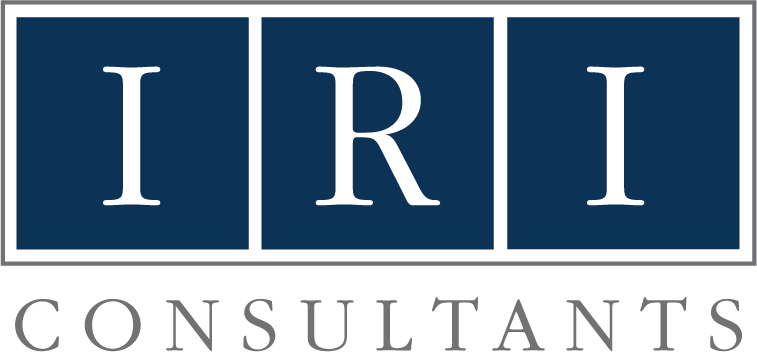Following the Great Resignation of 2021, employee well-being has been a key focus for employers. The New York Times reported on the growing “recognition economy” and the efforts by employers to show their employees they care. The Mayo Clinic also published a study to better understand physician well-being, noting that “awareness of occupational distress among physicians and efforts to cultivate physician well-being have crescendoed in recent years.”
While healthcare workers tend to get the most attention for burnout—justifiably so considering this industry’s growing set of unique challenges—at IRI, we see firsthand with our clients that employee recognition is important and valuable to all employees in all industries and sectors. That’s because when employees – no matter their title, experience, or years of service – feel recognized, valued, and respected, it’s a win-win for all.
Creating a Culture of Employee Recognition
Positive employee recognition can help organizations retain top talent, incentivize employees who may need that little extra push, increase engagement and productivity, and encourage optimal performance from the top down. However, recognition must be doled out in an authentic and meaningful way. For example, does your organization follow the approach of sharing general feedback on all company calls or in large town hall meetings?
If you answered yes, it may be time to re-think your employee recognition strategy. Consider the following when sharing recognition with your employees:
- Be specific: In order to create an effective and lasting culture of employee recognition, you need to say more than a simple thank you. Spotlight an individual employee and highlight specific accomplishments the employee has achieved that moved your organization forward in a positive way.
- Understand each employee’s recognition preference: Employee recognition is not a one-size-fits-all approach, so you don’t want to stick to just one form of recognition. Take the time to discover how your employees prefer to be recognized. What is their love language? Some may prefer a private 1:1 meeting, while others may prefer to be recognized in front of a group of their peers. Simple actions like this can make a big difference in how employees receive and respond to praise.
- Timing matters: Notice an employee going above and beyond for a project or client? Speak up and act as soon as you can. Tell the employee how much that means to you, your team, and your organization. Timely recognition is more meaningful and authentic than praise that is shared three or six months down the road during a performance review.
- Authenticity matters: When sharing recognition, check to be sure you believe what you’re saying before you say it. Sincerity always matters in employee communications, and especially so in times of acknowledgement and recognition. Additionally, make sure you are inclusive of all employees throughout your organization.
Implementing an Employee Recognition Program
If these ideas sound appealing, but you don’t already have an employee recognition program in place, now is the time to start. But before you do, understand that this isn’t a one-and-done kind of thing. The best and most effective employee recognition programs are always evolving and taking into consideration how employees, both old and new, are best poised to give and receive praise and feedback.
Start by evaluating what’s most important to your organization. A great way to do this is to include relevant questions in your employee engagement surveys. Gather information and responses to understand what matters to your employees, how they like to be recognized, and what could lead to the highest levels of employee engagement. Then, consider these additional steps:
- Determine your unique objectives: Use your survey results to solidify what exactly you want to accomplish with your program. These objectives will depend on your organization’s unique challenges, like employee apathy or high turnover, for example.
- Make it measurable: Ensure your program has measurable data that allows you to compare recognition efforts across your organization over defined periods of time. This will allow you to track how much employee recognition is actually occurring and the impact its having on the organization.
- Integrate with internal communications: Boost the effectiveness of your program by integrating it with your internal communications channels like Microsoft Teams, SharePoint, etc. This will not only help simplify and streamline efforts, but also ensure employees receive recognition in real time. You can also consider leveraging social media to boost employee engagement.
- Train your leaders: Provide training to help leaders understand why praise and recognition are important to the long-term health and sustainability of your organization, the formal and informal ways they can recognize employees, and how they can be more praise-proficient in the moment.
Employee recognition programs are important because employees who know how much their leaders and organization value their performance are more likely to remain happy and engaged – and less likely to engage a third-party like a union or look elsewhere for employment. With all this information in mind, ask yourself: Are you making the most of your employee recognition program?
At IRI, we help clients maximize their performance by incorporating employee engagement into their overall business strategy. We believe every business is different, and each requires its own holistic and customized approach to communications. Whether you need support in launching an employee recognition program, an internal communications assessment, guidance in developing your internal communications strategy or social media strategy, digital media intelligence, crisis communications services, media relations, or media training, we have expert communications consultants who can quickly provide a specialized solution. Contact us online today to discuss the next steps, or give us a call at (313) 965-0350.Emma Ray — Consultant, IRI Consultants
